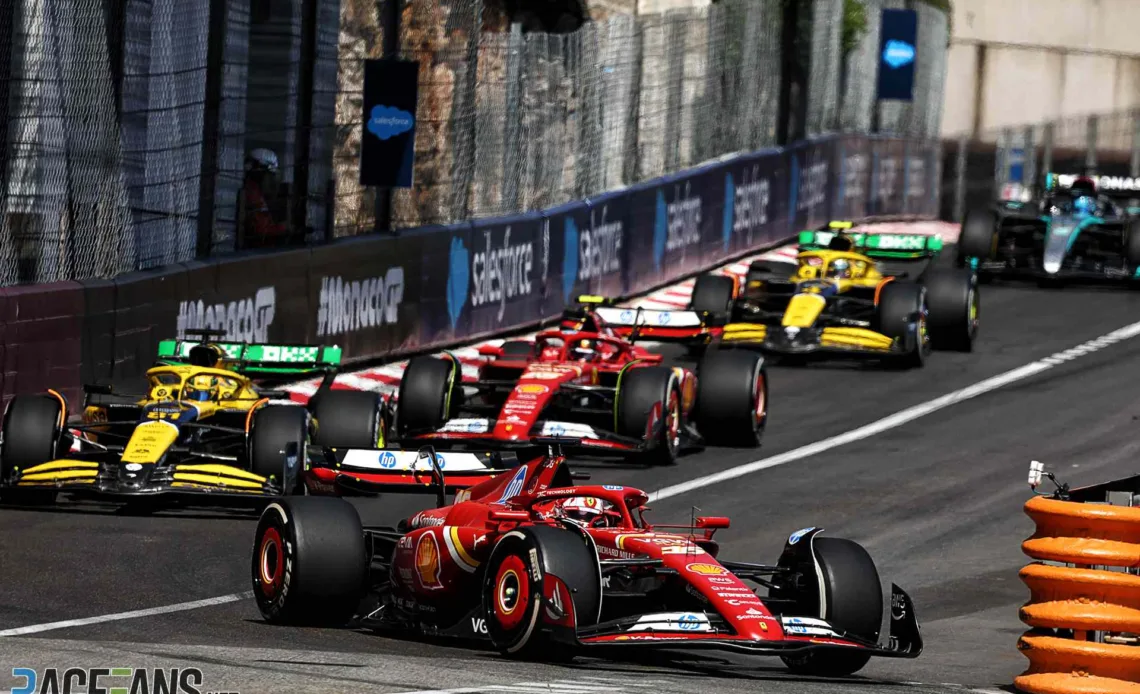At a circuit where racing is extremely difficult enough already, it was near-impossible last weekend in Monaco after the opening lap red flag.
With teams free to change tyres during the stoppage, virtually the entire field swapped to avoid having to make any green flag pit stop over the rest of the race.
That meant the final 77 laps were simply an exercise in tyre saving, where the big, heavy modern F1 cars had little room to pass around the shortest, narrowest circuit on the calendar. As a result, drivers were not pushed anywhere close to their limits over Sunday’s grand prix, with the vast majority staying well within themselves as they looked to tick off the remaining laps.
As RaceFans’ driver ratings system is intended to recognise and reward exhibitions of skilled driving across a grand prix weekend, it does not feel right to hand out particularly high marks for what was achieved on track during the grand prix – even if their conservative driving was hardly through choice.
For that reason, the scores for last weekend are generally lower than they would be for a typical weekend – but that reflects less on the drivers themselves and more on the circumstances they happened to find themselves in. But there were a couple of drivers who definitely stood out and were deserving of decent marks for their weekends’ work.
Here are the RaceFans driver ratings for the Monaco Grand Prix.
A guide to RaceFans’ driver ratings system
RaceFans’ driver ratings system assesses driver performance across all three days of a grand prix weekend. Naturally, performances during competitive sessions – qualifying, sprint races and grands prix – will carry the most weight to their rating.
However, practice performance can affect a driver’s weekend rating in the event of a major mistake, such as a crash, consistent errors throughout practice sessions or if a driver shows a notably impressive speed throughout all free practice sessions relative to their team mate.
The system attempts to take into account the relative performance of each driver’s car and the expected results from that, meaning that a driver who wins a race in a car clearly superior to the rest of the field may not necessarily score as highly as a driver who claims a low points finish in a midfield car.
Ratings also attempt to take into account mitigating factors outside of a driver’s control. If a driver is forced to miss considerable track time due to car problems, is the victim…
Click Here to Read the Full Original Article at RaceFans…

